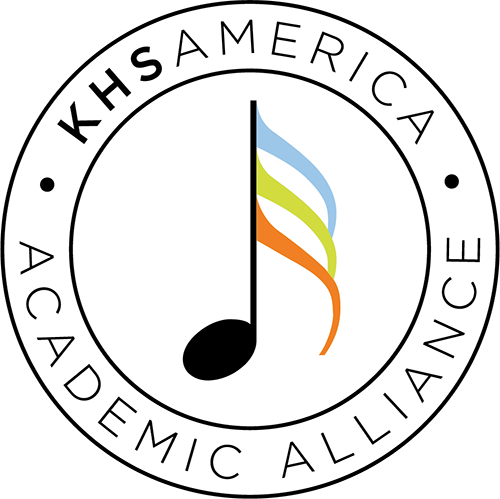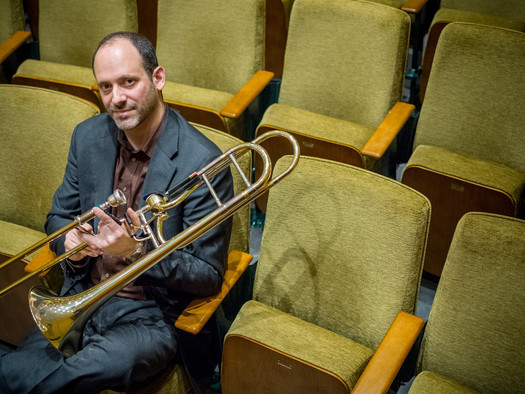I have spent many years visiting public schools throughout our nation, and most times I see the same thing: students hard at work. There is always lots of work going on in our schools, and with the increased emphasis on meeting national and state standards there is more work coming. My Kindergarten-bound daughter will get right to work when she goes to school next year on what used to be a 1st grade curriculum. As a matter of fact, my wife and I had to search quite a bit for pre-schools that were play-based as opposed to a more structured elementary school-ish routine. The less play our children experience during the school day, the more adult-assigned tasks they will receive — that’s not the roadmap to independent and creative thinking.
But when I visit music classes in schools, I see something different.
I see students playing.
Students don’t work instruments, they play instruments. And playing is one of the most natural ways in which people of all ages learn. But our schools see play too often as a “frill” or an expendable extra in their curricula. Somehow, administrators have grown to think that play detracts from working, studying, and test prepping. The irony is that play is exactly what our children need in their physical, social, emotional, and intellectual development. Instead, our schools are constantly chipping away at the one thing that our children thrive from — learning through play.
We are all born natural learners, but by the time children are a few years into school, many are bored, struggling, stressed out, or worse. Yet give them a musical instrument and good teaching and they become passionate about learning, problem solving, collaborating, and playing music.
Here are 3 reasons why music education — and the concept of play — is so crucial to our education system:
- Children are designed to play. Want to test this theory out? Give some children a cardboard box and sit back and watch them imagine, role-play, and have fun completely independent from adults. It’s a basic drive that is hard-wired into all of us. Therefore, sitting a bunch of children at desks in rows to perform adult-driven tasks in order to prepare them to fill out bubbles on a test sheet may not be our best educational plan. Incorporating music into every school day as a stand-alone class that does not “pull” from other courses is a large part of the answer. The same case should be made for the arts, recess, and physical education, of course.
- Music nurtures our children’s mind, body and soul. Can you imagine a school day that has no opportunity for play? Instrumental music class is a place where children make friends, solve problems by doing, and overcome their fears by experimenting, taking risks — and even failing — in a supportive environment. Our schools are becoming more and more standardized, and in the process they are eliminating opportunities for play to occur in the curricula. Will this damage our children? It’s questionable. But at the very least, it leaves parents to their own devices when it comes time to provide their children opportunities for true mental growth. This creates an enormous inequity when we start talking about students from low-income homes getting their fair shake educationally.
- Play allows for creative teaching. Play leads to imagination; imagination leads to innovation on the student’s and the teacher’s part. More than ever before, students need outlets during their school day to develop an appetite for work by playing first. Accompanied by great teaching, students are motivated to learn musical instruments. Once they are motivated to learn, they naturally acquire the skills they need (with assistance from the teacher) to make the music they want to make. Competent school leaders will harness the creative magic that happens in a music classroom and share those best practices throughout the curriculum.
What is the goal of education? I believe that school systems must do everything in their power to create conditions in which students want to and are able to learn. Parents need to continue to advocate for play to be included in school curricula — and music is a great start. With school days being extended and policymakers pushing for the school year to extend through summer months, our children’s time and freedom is being stolen from them in the interest of test scores.
Play is absolutely key to learning, but if we are not careful, it will slip away from our schools. Because of the large amount of time and energy directed toward testing and grading, school leaders tend to see play in school as risky and unproductive. Instrumental music instruction enables students to learn through play while also fitting the bill as far as creating measurable results that school leaders crave.
It’s no wonder that many students don’t want to show up to school these days. Most students who normally wouldn’t want to go to school do so when they are involved in a music program — they can’t wait to play in their school’s musical ensembles. With an ever-growing population that is becoming more disinterested in school in its present form, we would be wise to do everything we can to ensure that playing musical instruments is a core part of our children’s education moving forward.
About the Author
A GRAMMY® nominated music educator, ANTHONY MAZZOCCHI has performed as a trombonist with the Los Angeles Philharmonic, New Jersey Symphony, San Diego Symphony, San Diego Opera, Riverside Symphony, Key West Symphony, in various Broadway shows and numerous recordings and movie soundtracks. Tony has served as faculty or as a frequent guest lecturer at The Juilliard School, Manhattan School of Music, New York University, and Mannes College of Music. He has taught grades 4-college and has served as a school district administrator of fine and performing arts. Tony has been a consultant for arts organizations throughout the NY/NJ area. He is currently Associate Director of the John J. Cali School of Music at Montclair State University in New Jersey and Co-Executive Director of the Kinhaven Summer Music School in Weston, Vermont with his wife, Deborah. To read more from this author, please see his book, The Music Parents’ Guide : A Survival Kit for the New Music Parent. It is available at http://www.amazon.com/dp/B00U6S974G.
The content of this Blog article or Banded Story is the intellectual property of the author(s) and cannot be duplicated without the permission of KHS America and/or the author(s). Standard copyright rules apply.



 We look forward to the evolution of this exciting program, and welcome feedback on how we can further enhance the work that you do in music education.
We are excited to offer your program the opportunity to join the KHS America Academic Alliance today.
We look forward to the evolution of this exciting program, and welcome feedback on how we can further enhance the work that you do in music education.
We are excited to offer your program the opportunity to join the KHS America Academic Alliance today.